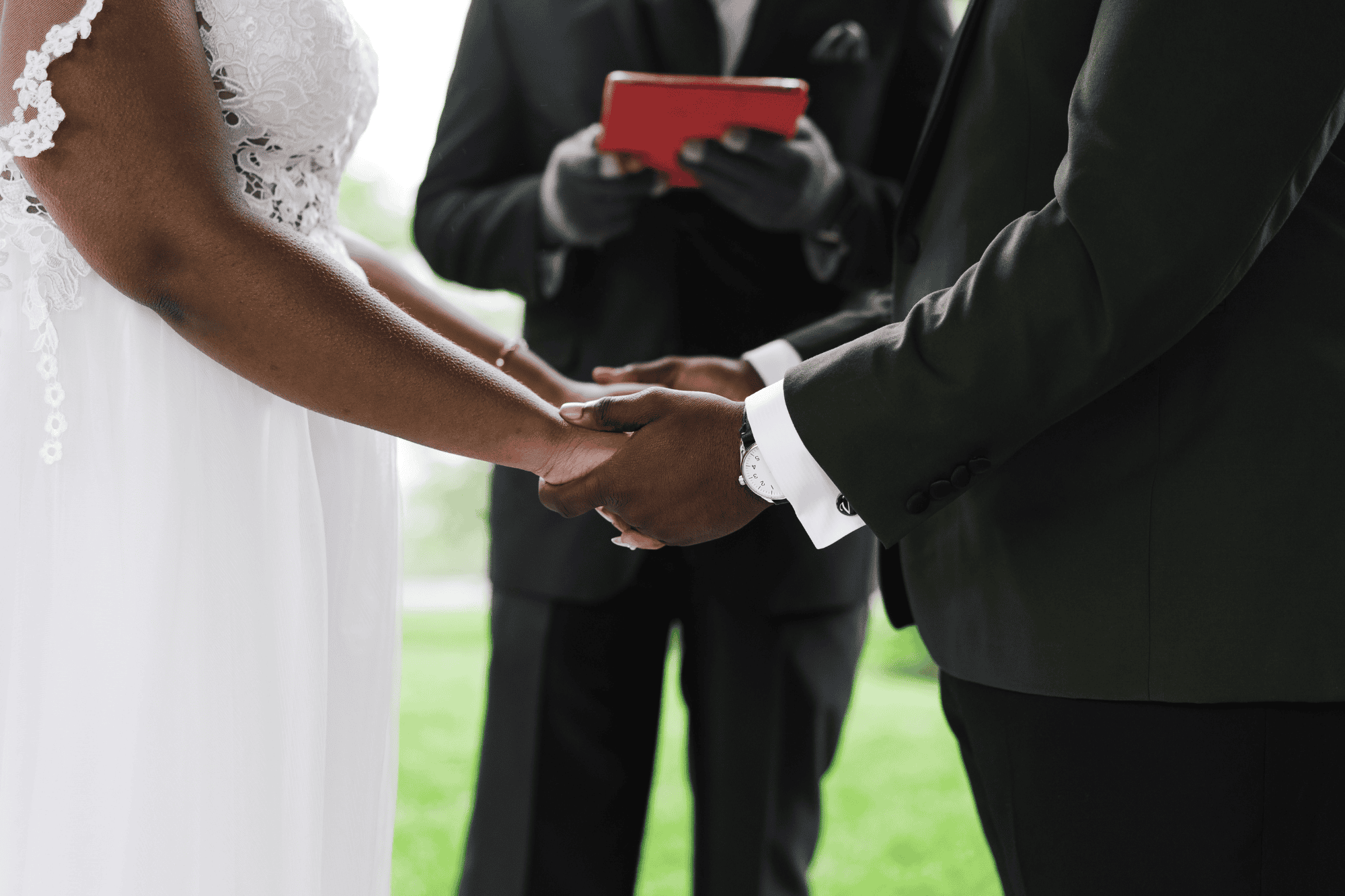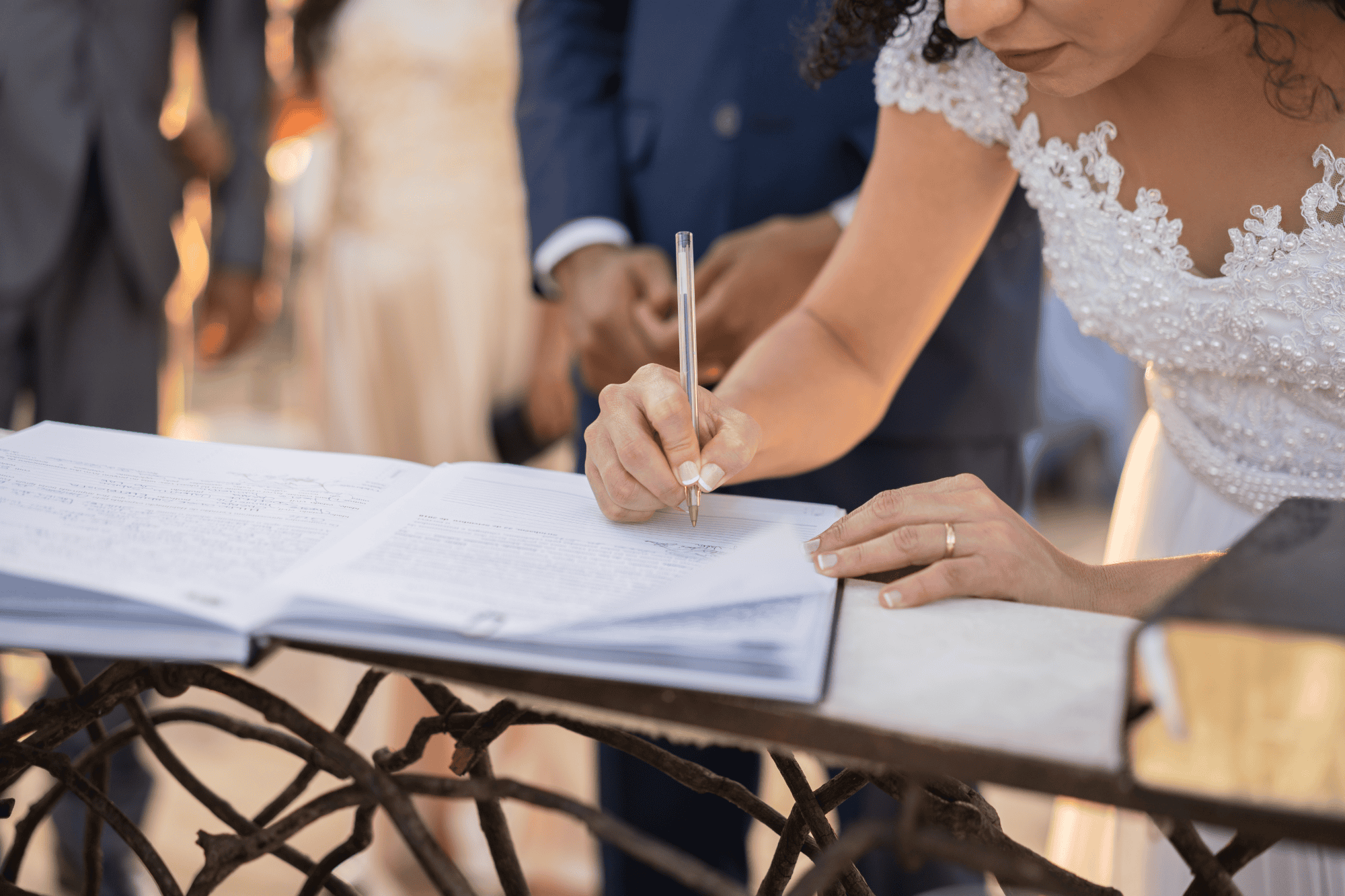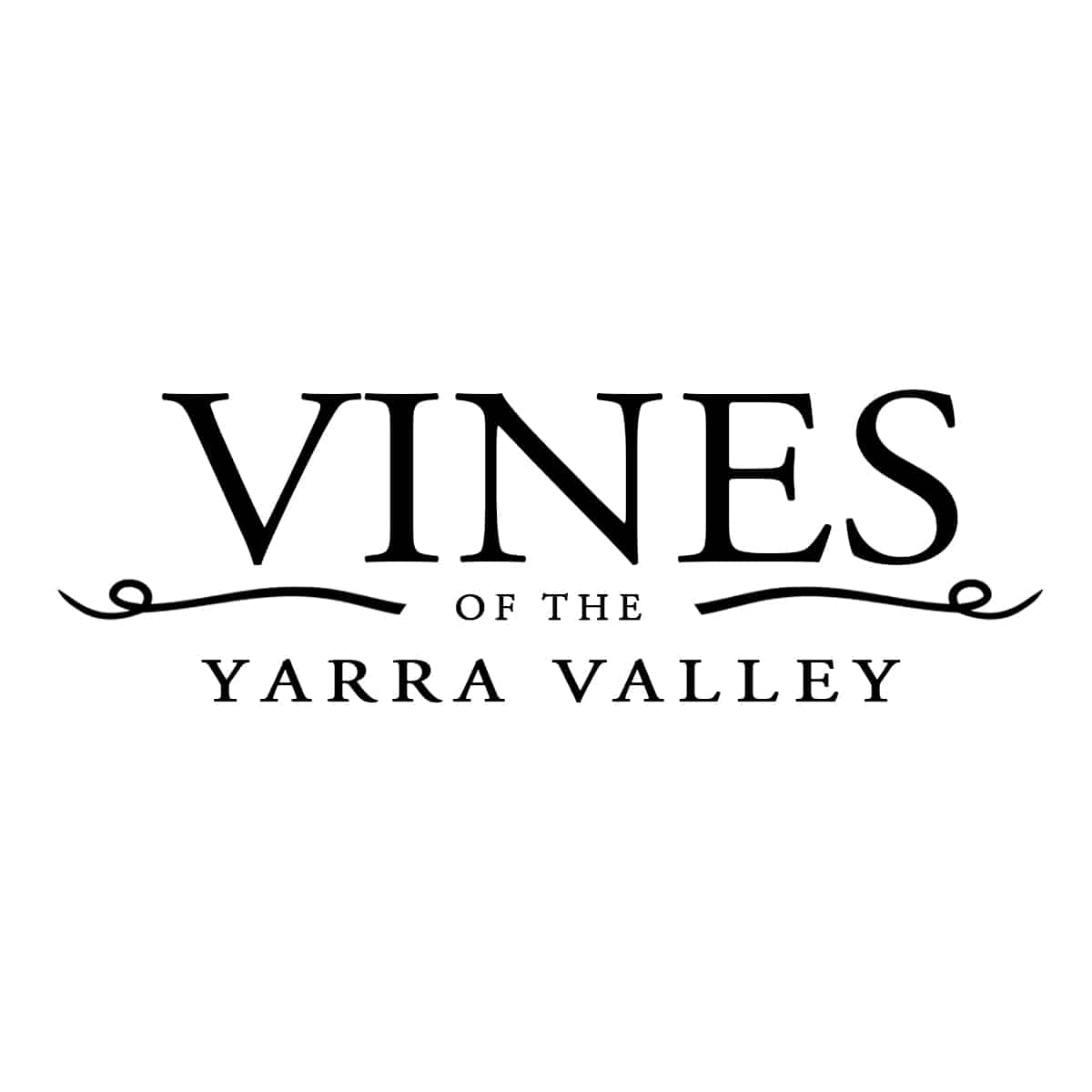Choosing the right wedding officiant is a critical part of planning your special day.
Whether you’re seeking a secular or religious ceremony, finding someone who aligns with your values, preferences, and wedding vision is essential.
In Australia, there are many different types of officiants available, from religious leaders to civil celebrants, each offering a unique approach to your wedding ceremony.
This guide outlines how to find a wedding officiant in Australia step by step, along with practical tips to ensure you make the best choice for your big day.
Let’s get straight to the point
To find the perfect wedding officiant in Australia, first decide whether you want a secular or religious ceremony.
Then, research local officiants, including civil celebrants or religious leaders, and meet with several candidates to discuss their style, experience, and availability.
Personal recommendations and online reviews can guide your choice. Ensure the officiant is legally authorised and aligns with your values and vision for the ceremony.
Discuss fees, services, and request a sample script to confirm they’re a good fit. A great officiant will personalise the ceremony and make your wedding day truly memorable.
Steps To Finding The Perfect Wedding Officiant In Australia
1. Decide On The Type Of Ceremony: Secular Or Religious
Before searching for a wedding officiant, it’s important to determine whether you want a secular or religious ceremony. This decision will narrow down your options and help you focus on finding the right officiant for your specific needs.
- Secular Ceremony: If you prefer a non-religious ceremony, you can choose from civil celebrants, Justices of the Peace, or even a trusted friend or family member who has been legally authorised to officiate. These officiants offer flexibility in customising your ceremony to reflect your unique relationship.
- Religious Ceremony: For a religious wedding, you’ll need to find a leader from your faith—such as a priest, rabbi, or Imam—who is qualified to conduct your ceremony according to religious traditions. Each faith may have specific requirements, so it’s essential to clarify these with your religious institution.
2. Research Local Officiants
Once you’ve decided on the type of ceremony, start researching local officiants who are available in your area. You can begin by:
- Contacting the local county clerk’s office: If you’re opting for a secular ceremony, they can provide a list of authorised Justices of the Peace or civil celebrants.
- Checking religious institutions: For religious ceremonies, reach out to local churches, temples, mosques, or synagogues to find officiants who perform weddings.
- Online directories: Many officiants list their services on wedding websites and directories, making it easy to compare options and read reviews.
3. Meet And Interview Potential Officiants
Meeting with potential officiants is an essential step in ensuring they’re the right fit for your wedding.
Set up meetings or interviews with at least three to five officiants to discuss their approach, experience, and availability. Here are some key questions to ask during these meetings:
- What is your experience in officiating weddings?
- How do you personalise ceremonies for couples?
- Are you available on our wedding date, and can you attend the rehearsal?
- Can you provide references or examples of previous ceremonies?
By meeting multiple officiants, you’ll get a better sense of their style and whether they align with your vision.
4. Consider Personal Recommendations
Personal recommendations are a valuable resource when looking for a wedding officiant.
Ask friends, family, or colleagues who have recently been married if they can recommend someone.
This can provide insight into the officiant’s personality, professionalism, and ability to deliver a meaningful ceremony.
5. Verify Legal Requirements
In Australia, it’s essential to ensure that your wedding officiant is legally authorised to perform marriages. All marriage celebrants must be registered with the Australian Government.
You can verify this by checking the Attorney-General’s website, which lists all authorised celebrants. Ensure the officiant you choose meets these requirements to avoid any legal issues on your wedding day.
6. Request A Sample Ceremony Script
Before making a final decision, ask the officiants you are considering to provide a sample of a ceremony script they’ve used in the past.
This will give you a sense of their style, tone, and how they structure the ceremony. If the officiant is flexible, they should be open to personalising the script to suit your preferences and the unique aspects of your relationship.
7. Discuss Fees And Services
Wedding officiants may charge different fees depending on their experience, location, and the level of customisation required for your ceremony. Make sure to discuss:
- Fees: Ask for a breakdown of the officiant’s fees, including any travel costs if your wedding is in a remote location.
- Services: Clarify what services are included, such as attending the rehearsal, drafting a personalised ceremony script, and handling the legal paperwork.
It’s important to be clear about these details upfront to avoid any surprises later on.
Types Of Wedding Officiants In Australia
1. Civil Celebrants
Civil celebrants are authorised to perform legal, non-religious ceremonies.
They offer flexibility in terms of ceremony structure and style, making them ideal for couples who want a personalised, secular wedding.
Civil celebrants can tailor the ceremony to include special readings, rituals, or personal vows, allowing you to create a unique experience.
2. Religious Leaders
If you prefer a traditional religious ceremony, you’ll need to find a religious leader from your faith who is authorised to perform marriages in Australia.
Religious leaders, such as priests, rabbis, or Imams, will typically follow the customs and rituals specific to your faith. Make sure you understand any requirements or restrictions that may come with a religious ceremony.
3. Justices Of The Peace
A Justice of the Peace (JP) is an official who can perform legal marriages. They are typically available through your local courthouse or municipal office. A JP is a good option if you want a simple, straightforward ceremony without much personalisation.
4. Family Members Or Friends
In Australia, it is possible for friends or family members to become registered celebrants and legally officiate your wedding.
This option adds a deeply personal touch to your ceremony, but it’s important to ensure they complete the necessary legal requirements to be able to officiate.
Tips For Finding The Right Wedding Officiant
1. Align Your Values And Vision
The officiant’s values and approach should match your own.
Whether you prefer a traditional, solemn ceremony or something light-hearted and humorous, your officiant should be able to deliver the tone and mood you want for your wedding.
If you’re planning a religious ceremony, ensure that the officiant’s interpretation of your faith aligns with your beliefs.
2. Ensure They’re Comfortable With Public Speaking
A key role of the wedding officiant is to speak confidently and clearly in front of your guests. When meeting with potential officiants, pay attention to how comfortable they are with public speaking.
You want someone who can project their voice, keep the ceremony flowing smoothly, and engage with the audience. If possible, ask to see a video of the officiant performing a previous ceremony to get a sense of their speaking style.
3. Check Their Availability
Wedding officiants can get booked up quickly, especially during peak wedding seasons.
Make sure to confirm their availability on your wedding date and whether they can attend a rehearsal.
If you’re planning a destination wedding, check whether the officiant is willing to travel and if there are additional travel costs involved.
4. Get Personalised Ceremony Ideas
One of the benefits of working with an experienced officiant is their ability to offer creative and personalised ceremony ideas.
Discuss with them how they can incorporate your love story, family traditions, or cultural elements into the ceremony. A great officiant will work with you to create a ceremony that feels personal and unique.
5. Ask About Pre-Wedding Meetings
Many officiants like to meet with the couple several times before the wedding to discuss the structure and details of the ceremony.
This can include readings, vows, and any special rituals you want to include. These meetings also give you a chance to build rapport with your officiant and ensure they understand your vision.
6. Ensure A Good Personality Fit
It’s important that you and your partner feel comfortable with the officiant.
You’ll be sharing one of the most significant moments of your life with them, so their personality and approach should resonate with you.
Whether they’re religious or secular, make sure they can create a positive, respectful, and relaxed atmosphere.
7. Ask For References Or Reviews
If possible, ask your officiant for references from past clients. Reading reviews or testimonials can give you an idea of their reliability, professionalism, and ability to adapt to different types of weddings. This is especially useful if you’re considering a friend or family member who is new to officiating.
Conclusion
Selecting the perfect wedding officiant is a key part of making your special day truly memorable.
Whether you’re opting for a religious ceremony or a secular celebration, the officiant will set the tone for one of the most important moments of your life.
By following the steps outlined above—deciding on the type of ceremony, researching local officiants, meeting potential candidates, and ensuring they’re legally authorised—you’ll be well on your way to finding an officiant who resonates with your values and vision.
With careful planning, thoughtful discussions, and personalisation, your officiant can help craft a meaningful, heartfelt ceremony that reflects the love and commitment you and your partner share.
After all, your wedding day is about celebrating your unique story, and the right officiant will help bring that to life.
Frequently Asked Questions
What is an officiant in a wedding?
A wedding officiant is the leader of the wedding ceremony. They work with the couple to prepare materials for the ceremony and perform the marriage on the day of. Read on for a complete guide to officiating, from getting ordained to writing the actual ceremony.
Can my friend officiate my wedding?
The quick answer to that is yes; it is possible to have a friend of family member perform your marriage ceremony once they have been legally ordained to do so.
Getting ordination can be as simple as filling out an online form from a ministry that will ordain anyone who wants to solemnize weddings.
Can anyone perform a wedding?
But according to Anwar, there is nothing to stop a friend from conducting a ceremony to mark a marriage.
All parties just need to be aware the ceremony has “no legal effect whatsoever” and the happy couple with have to pop to the registry office before or afterwards to make their commitment legally binding.
How do I choose an officiant for my friend?
Choosing an Officiant
- Do they know both of you well and understand your relationship?
- Can they speak well in front of a crowd?
- Are they comfortable with any religious aspects you may want for your ceremony?
- Are they comfortable writing their part of the ceremony?
Who officiate a non religious wedding?
Celebrant. A celebrant, in general, is someone who performs either religious or secular ceremonies for marriage (and other rites). A celebrant can be an ordained clergy member, professional secular officiant or legal official, such as a judge.



